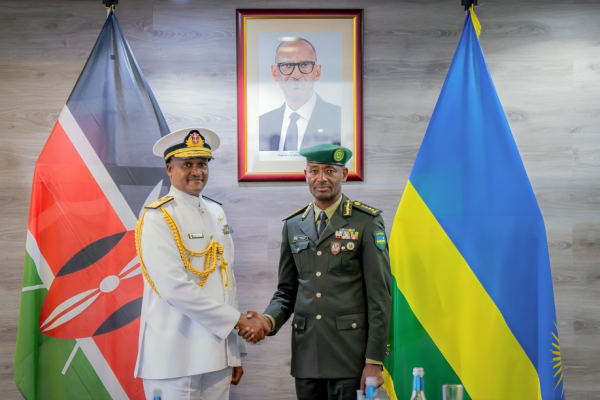Rwanda’s State Minister for Agriculture, Dr. Telesphore Ndabamenye, has reaffirmed the government’s commitment to investing in agriculture as a central pillar for food security and economic growth.
In an exclusive interview with EAMGTV, Dr. Ndabamenye said that Rwanda’s ongoing efforts are focused on building resilient and sustainable agri-food systems designed to boost productivity, strengthen partnerships, and ensure that no Rwandan goes hungry.
“We have been investing a lot in food security by increasing productivity,” Dr. Ndabamenye said. “Currently, we have a food system-centered strategy called Building Resilient and Sustainable Agri-Food Systems, which brings together most of the partners and actors across the entire value chain.”
According to the minister, this framework provides a coordinated approach that allows the government to attract more investment and collaboration across key sectors.
“We wanted to transform our food systems by shifting from fragmented efforts to consolidated, synergized efforts. Among the priorities we have to put forward is making the right investment,” he explained.
Dr. Ndabamenye emphasized that the government has increased budget allocations to the agriculture sector, working closely with development partners and the private sector to address challenges such as climate change, low productivity, and limited access to markets.
“We have been investing in access to agricultural inputs to help farmers increase production and productivity,” he said. “The government has also invested in climate-resilient technologies, especially irrigation development, to increase productivity and adapt to climate change challenges.”
He added that these efforts have already produced measurable results, with production in some irrigated areas tripling, and more farmers being mobilized to join the journey toward self-sufficiency.
The minister also highlighted the importance of public-private partnerships in driving the country’s agricultural transformation.
“Investment has been coming from the government side, development partners, and the private sector,” he noted. “The private sector is now part of the journey to make sure that Rwanda’s agriculture transformation is real. We’re investing in mega projects meant to drive food and nutrition security, while also increasing income generation for farmers.”
Reflecting on the continental level, Dr. Ndabamenye pointed to Africa’s joint commitment to the Common African Strategy for Food Systems Transformation, developed after the UN Food Systems Summit in 2021. He said this collective framework aims to reduce hunger and malnutrition while fostering sustainable agricultural growth across the continent.
“The African food system transformation can’t work in isolation,” he said. “We share the same challenges—climate change, market access, and resource management—but we also share opportunities. We have water resources, fertile land, technologies, and partners. If we synergize and tackle these issues together, we can transform agriculture in Africa,” he added.
He stressed that resilient policies and smart investments are essential for making a lasting impact.
“We need resilient policies that can be shared across the continent. If we are investing in climate change adaptation, we have to make sure that this investment is well-managed and delivers real impact. Collaboration, coordination, and partnership are the key drivers of agricultural transformation.” he said.
As Rwanda continues to implement its national food systems strategy, Dr. Ndabamenye reaffirmed the government’s commitment to transforming agriculture into a dynamic, technology-driven sector that supports food security, nutrition, and economic resilience for all Rwandans.
Image: EAMG News



